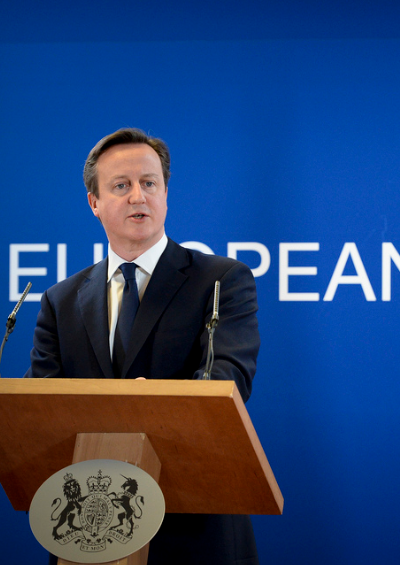Grexit and Brexit: Some Stunning Parallels
Both Greece and Britain could face referendums that would change their place in Europe.
May 14, 2015

Alexis Tsipras and David Cameron — respectively, the Greek and British prime ministers — were both elected with 36% of the total vote this year. And both men surely managed to turn an otherwise meager margin of victory into a most amazing election win imaginable. In both cases, that was due to the vicissitudes of their unusual national election systems.
Both prime ministers want national EU governments and the Brussels institutions to be more flexible, offer a specific national deal and bend the rules to fit in with their demands. The difference lies in the fact that, on substance, they want the very opposite of what the other man claims.
But then again, look for another parallel in the two negotiating teams: The lead negotiators for Britain and Greece – George Osborne and Euclid Taskalotos — are both graduates of the elite London private school, St. Paul’s.
Fear the referendum
Where the two countries part company is that the Greek government apparently now does not want to hold a referendum over the economic package the EU and the other institutions offer to Greece. Syriza is quite possibly afraid that the Greek people would vote for a tough deal (viewed from the Greek vantage point), just so their country can stay in the Eurozone.
Syriza’s dislike of a referendum, despite its constant referral to popular will, stands in stark contrast to then Greek Prime Minister, George Papandreou, who did want to hold a referendum on whether to accept the economic rescue package offered to his government.
However, in November 2011, Nicolas Sarkozy and Angela Merkel put immense pressure on Papandreou not to hold such a vote. He buckled and gave in to the Geran and French governments.
But his instinct was correct. It would have been better if Greece had faced up what was needed to be done through a referendum as Greece’s discredited political class no longer has any moral authority over the nation.
The need for democratic legitimacy, in a curious reversal, is now also recognized by Germany. Its finance minister, Wolfgang Schäuble, a hardliner on economic reforms, says a referendum in Greece might be necessary to get the Greeks to decide once and for all if they will pay the necessary price for being an EU and Eurozone member.
This suggestion of a Greek referendum reinforces the parallels between Greece and Britain.
Denis MacShane’s latest book is “Brexit: How Britain Will Leave Europe” (I. B. Tauris, March 2015).

